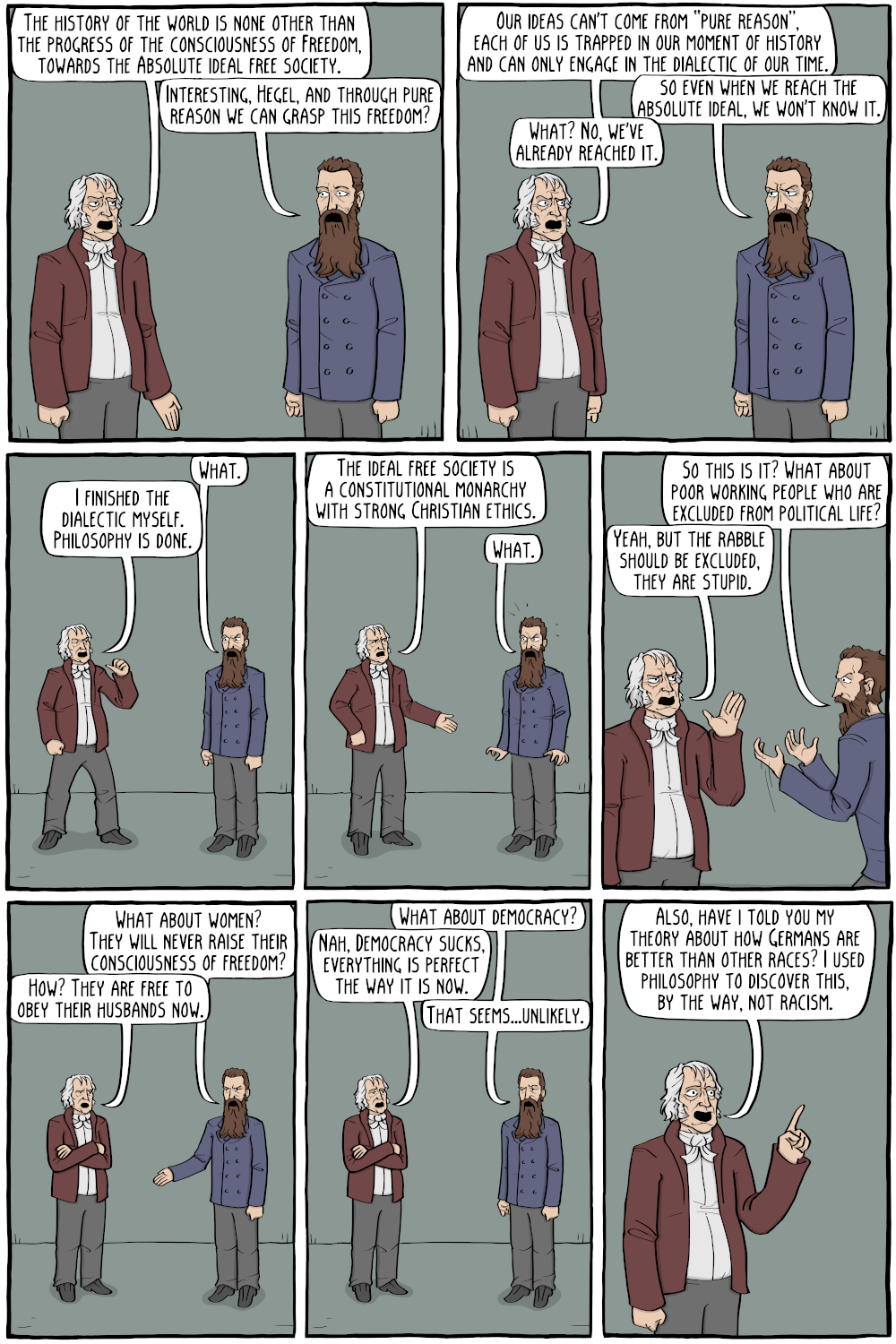
Hegel's philosophy of history states that history is a kind of dialectal progression towards "the consciousness of freedom". What this meant is that each generation struggles to become more and more free, until eventually the reach the perfectly rational society of freedom. Then, rather amazingly, he concluded that this process had more or less concluded and that they were living in such a society in 18th century Prussia, under a Constitutional Monarchy, which was the final form of society. Some people claim this was to avoid the censures, but as he got older he got quite conservative in many areas, so it's hard to say.
Hegel did recognize that a large part of society, namely the uneducated poor who had no real hope of advancement, which he called "the rabble", were excluded from political and social influence, and more or less condemned to live and die as poor laborers (Prussia was just transitioning from Feudalism to Capitalism at this time). However, he seemed to not really be too bothered by this. In addition he somehow seemed to not think this progression of the "consciousness of freedom" would ever apply to women, and he seemed to think that Democracy was less free than a Monarchy (although in his conception the Monarch would have very little real power). He also expounded many theories for why such a consciousness of freedom had failed to arrive in places such as Asia and African, and let's just say, well...that not all of his ideas aged so well.
Permanent Link to this Comic: https://existentialcomics.com/comic/348
Support the comic on Patreon!










